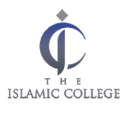ISC316 – Modern Islamic History
Course Overview
This module aims to provide students with the final piece of the puzzle, so that (combined with their previous knowledge) they will have a complete grasp of the 14 centuries of the historic development of Muslim nations and how history has shaped the Islamic world as we know it today. It will introduce the period following the end of the Abbasid dynasty. The main focus will be on providing students with a critical analysis of the Ottoman caliphate and Safavid and Qajar rule. It will cover the factors of their declines and the attempts of administrative reforms made by the rulers and the response to these reforms and the religious and political trends that ended up with the formation of nation states.
Module Info
- Syllabus
- Outcomes
- Strategy
- Material
sYLLABUS
The syllabus will cover the following key points:
-
- The formation of the Ottoman empire
- State and society of the Ottoman, Safavid and Qajar states
- Ottoman-European relations
- Shi’ism and the Safavids
- The reform movements
- Young Turks and nationalism x Qajar Iran and reform
- Iran’s Constitutional Revolution
- Impact of World War I upon the Middle East
- Intellectual Trends: secularism and Islamic modernism, rural life, peasants, tribes and urban life
Learning Outcomes
Knowledge
On completion of this module, the successful student should be able to:
- Critically analyse the causes of the decline of Muslim societies in the 19th century. (A8)
- Critically discuss and review the approaches of Muslim thinkers to the social forces of decline. (A2)
- Critically assess past events to conclude how historical forces have shaped contemporary
- Muslim societies and nations. (A5, A7)
Skills
On completion of this module, the successful student will be able to:
- Systematically identify, collect and organize historical material to propose, deduct and support arguments. (B6, C1, C5, D5)
- Critically appraise contemporary world social and political events involving the Muslim world interaction with the rest of the world, linking themes and religious trends to their historical context. (B4, C2, C3, D3)
Learning, Teaching and Assessment Strategy
The module will be taught through lectures, discussion, seminars, group tutorials and a coursework. Student work will be developed through class work and search of primary and secondary sources. Students will present and discuss work in progress in group and they are expected to develop their skill independently each in the given task. When students come from a range of denominational backgrounds the topics would be taught in a round table context to discuss area of special interest.
Assessment Mode
Formative Assessment:
Formative assessment is an important part of the learning process and has been shown to help improve both grades and learning style. As students you receive formative feedback in a variety of ways, orally, in writing, to the whole class or individually. The module leader will regularly give feedback to student regarding the progress of their coursework, a draft copy of the completed coursework need be handed in to the module leader before the 10th learning week as part of the formative learning process. Additionally, revision sessions are arranged that will cover topics in preparation for exams, providing constructive formative feedback to students.
Summative Assessment:
Assessment for this module consists of a 1,500 words word coursework (Outcomes 2, 4), as well as a 2 hour written examination that will take place at the end of the semester (Outcomes 1, 2, 3, 5).
Assessment Weighting
Coursework: 50%
Written examination: 50%
Learning Material
Core readings
- Fisher, S. N. (1996) The Middle East: A History, vol. 1 NY: McGraw-Hill


